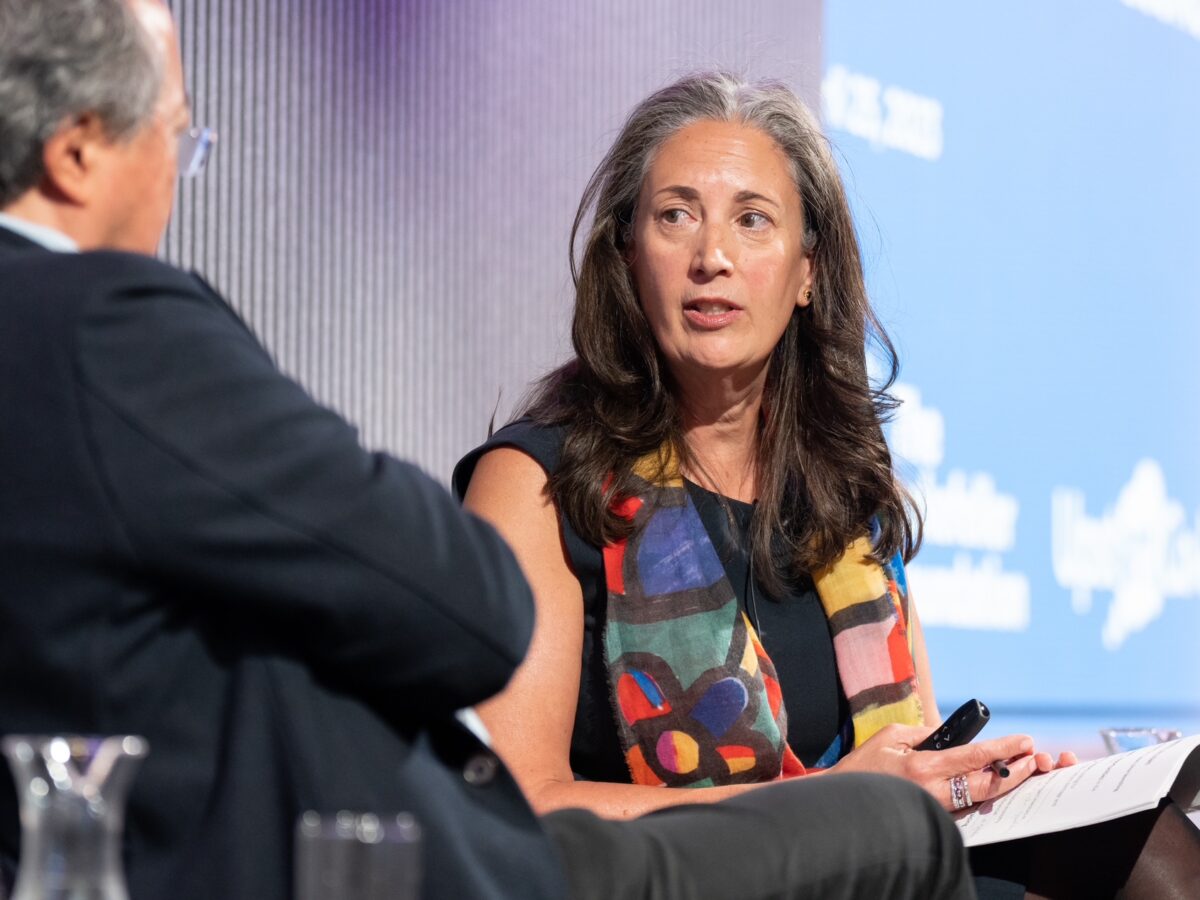Laura Callanan ’83: The Creative Economy

Laura Callanan ’83 brings creative entrepreneurs and impact investors together.
As stage manager at the Academy’s Fisher Theater, Laura Callanan ’83 ran productions of A Streetcar Named Desire and Night School using many of the same organizational skills that she later parlayed into key positions with the National Endowment for the Arts, McKinsey & Company and the United Nations. As chief of staff for the U.N. Development Programme’s Bureau of Crisis Prevention and Recovery, she collaborated with colleagues from around the world.
“We realized that every one of us had been a stage manager,” Callanan says of one U.N.D.P. working group. “There’s no better way to learn about deadlines and details than making sure the light goes on at the right time and in the right place.”
Today, Callanan, a Barnard College theater major who went on to earn a Master of Public Administration in public finance, has blended her many experiences into Upstart Co-Lab, of which she is founding partner. Upstart serves as a bridge between creatives who are entrepreneurs and impact investors who seek to achieve a social or environmental benefit alongside a financial return.
The idea for Upstart arose during Callanan’s time at the NEA, when she observed creatives were not just working alone in a studio or starting nonprofit organizations, but were increasingly launching for-profit social purpose businesses. She set out to connect these creative entrepreneurs to the trillions of dollars of impact capital in the U.S.
“A lot of transformation for the whole economy can begin in the creative industries,” Callanan says. “At Upstart, we’re not focused on funding ‘the arts.’ We’re focused on financing businesses in creative industries that provide products, services and platforms to customers. Businesses that hire people, that pay taxes — and that need investors to grow.”
Callanan finds creative entrepreneurs work in some 145 industries that span fashion, food, film, TV, video games and more. One such business is Making Space, whose founder, a 20-something serial entrepreneur who is living with a disability herself, connects media and entertainment companies looking for staff with qualified, skilled disabled talent. In just under a decade, Upstart has mobilized some $45 million and is recognized as the leader in the field of impact investing for the U.S. creative economy.
She is careful to point out that impact investing can play a role in anyone’s financial plan. And the creative economy, valued at more than $1.2 trillion in the United States, can be part of any impact investor’s portfolio. According to the U.N., the creative industries are expected to make up 10 percent of the global economy over the next decade. Countries around the world that have long relied on extractive industries and agriculture have grasped that it may just prove to be the golden egg for sustainable development and economic growth.
“Places like Indonesia with a very young population are intentionally leaning into the creative economy. They’re balancing tradition and innovation,” Callanan says. Given that, she and her team are routinely fielding inbound queries from community, state and international arts councils, and foundations exploring ways to invest in their local creative economies.
“That’s really exciting for us, because part of our work as a nonprofit is sharing what we’re learning to motivate and support other people who want to do this themselves,” she says of the process, now formalized as Upstart Consults.
Reflecting on her time at Fisher Theater, Callanan, who walked the boards in productions of Rashomon, Rosenkrantz and Guildenstern Are Dead and Equus, says acting, too, was pivotal to her career.
“I have no fear of public speaking. And I can translate between the creative people who are entrepreneurs and the investors,” she says, “and help people see where they’re talking about the same thing, just using different language. I would not have my deep appreciation of creativity and creative people without my experience in theater at Exeter.”
This article was first published in the spring 2025 edition of The Exeter Bulletin.